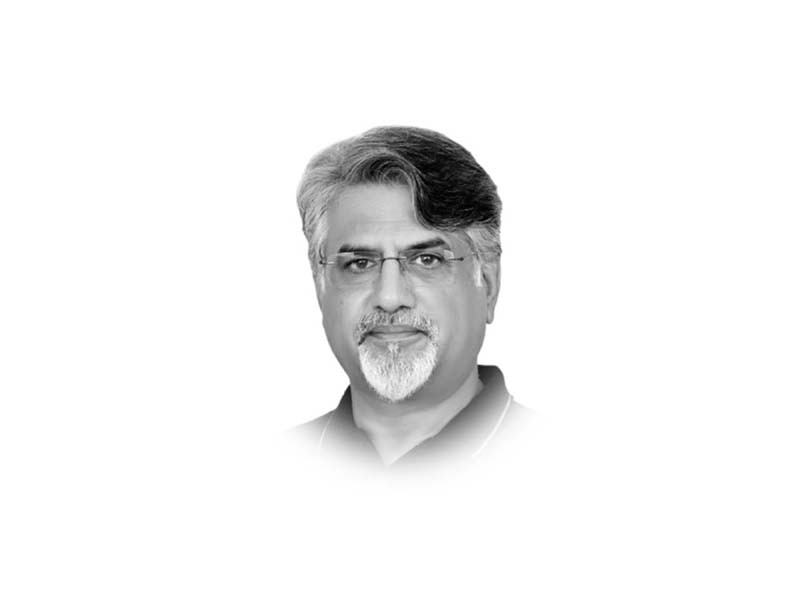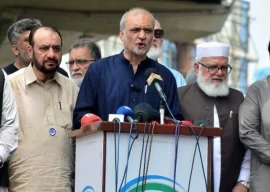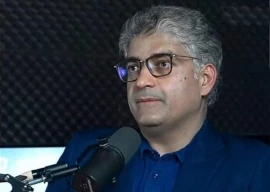
The big story of 21st century will not be the story of the US military might or Israel’s crimes against humanity and genocides but the rise of East against the West under the Russo-Sino leadership. The Gaza crisis demonstrates that the world order is not just and is tilted in favour of the West. Under these circumstances, the ‘no-limits partnership’ between the two great powers, Russia and China, lends hope to the developing world in the global south. The basis of this growing Russo-Sino relationship is the Chinese stand on the Ukraine crisis and many scholars consider the special operations in Ukraine by Russia as the firing of the first salvo at the existing US world order of liberal internationalism. Both Russia and China consider that if they don’t stand up together as partners, their sphere of influence in Eurasia and Western Pacific will be gobbled up by the imperialist western powers.
Pakistan can join the partnership of these two great powers to jointly dominate the Indo-Pacific region. Pakistan’s deep-sea ports in the Indian Ocean and Chinese access to the Western Pacific through its own ports can create a ring of security around Asia-Pacific. This trilateral alliance, together with other interested countries can prevent the ideological encroachment of this region by the US and its western allies and from doing what the US is best at doing — triggering and supporting revolts and revolutions in the Asia-Pacific countries in future. The alliance can accommodate more countries in the future not only to prevent the regional geopolitical encirclement but also the US-backed economic stagnation of this region.
Pakistan is on the threshold of building a new relationship with its Cold War rival Russia — something that is essential for Pakistan to make the much-needed transition from geo-strategic to geo-economic domain which is now part of its national security strategy. For a decade or so, there has been a thaw in the Russo-Pakistan relationship. Russia introduced a free trade agreement in the region by the name of Eurasian Economic Union (EAEU) in 2015 with the goal of increasing the economic cooperation and raising the living standards of people of Belarus, Armenia, Kazakhstan and Kyrgyzstan which together with Russia are the member countries of this union. A year prior to that, in June 2014, Russia lifted the self-imposed arms embargo on Pakistan and the same year when EAEU came into being the process of including Pakistan in SCO began which culminated when Pakistan together with India officially joined SCO in 2017. Also, in 2015 Russia posted on its state-funded official Think Tank Website RISS (Russian Institute of Strategic Studies) an article written by Andrew Korybko titled ‘Pakistan is a zipper of Pan-Eurasian integration’.
It was in this article that the Russian dream of Eurasian integration was highlighted in detail and it was in the same article that Pakistan was referred to as ‘South Asia’s gatekeeper’ and a country that was at the heart of any scheme designed to extract geopolitical and geo-economic benefits in Eurasia. Far from being a lost cause, Pakistan was termed the supercontinent’s most important economic hope. The importance of Pakistan’s potential was explained in its ability to connect the massive economies of the Eurasian Union, Iran, SAARC and China, thereby creating a pan-Eurasian economic zone.
For Pakistan the choice is very clear. The world is experiencing a great transformation; and with the US pivoting towards Asia, nobody is sure what would be the future security environment of the region and what will be the new developing threats. The example of the Middle East and the US-Israel genocidal military campaign in Gaza is in front of us. Despite the growing protests and a huge mandate given by the countries of the global south in UN General Assembly, the world has failed to execute and implement a ceasefire in Gaza. The recipe against the disease that the US and Israel spread through their military might is alliances and partnerships.
The trilateral alliance between three nuclear powers in the region can just be the start. The other Indian Ocean Rim States can eventually join the alliance under security guarantee similar to the one enjoyed by the European states under the article 5 situation of NATO charter. Pakistan can take a lead from the work of General Deisen, the Chief of Defense in Norway, who conceptualises how “two powerful trends are driving small and medium-sized European countries towards a fundamental change in their defense policies — one economic and the other strategic. Given the cost of growing military capabilities, small countries can simply no longer afford the luxury of sustaining the complete spectrum of capabilities of a modern conventional defense force on a national basis.”
Economically, Pakistan is tied to China through CPEC and BRI and strategically it can rely on the trilateral alliance to meet its geopolitical, geo-economics and geostrategic interests. In the 21st century, security is becoming rapidly regionalised and security challenges in the region must not be viewed with different conclusions and different priorities and the all-for-one and one-for-all is the most suitable security architecture that this trilateral alliance can help establish not only as a guarantee of security for the region but also creating an institutional ownership of any crisis that may arise in the region in future. As a result of the US pivot to Asia Pacific if the tensions between Russia and the US or China and the US increase then Pakistan will face a perfect integration dilemma: which powers should it integrate with and stand? The regional powers with which it shares its future or with an outside power which is fast losing its credibility and status as a global hegemon? For Pakistan the big question is the presence of this contradictory political and military desire. At this stage it seems that the most popular political party in Pakistan wants to be part of this trilateral alliance but the military is not ready to annoy the US which has been its erstwhile defence and strategic partner.
The switchover from the US to the Russia-China orbit is not easy and will remain an intensely politicised question in Pakistan because this switchover is a matter of changing foreign policy choices and national security choices and these subjects are not civilian but military subjects in Pakistan and are immune to any grand change or criticism. Military must support both the civilianisation of foreign policy and national defence policy. It must also pave the way and encourage the politicians to engage with regional powers and neighbouring countries in political dialogue and economic cooperation using the so-called soft power to achieve our foreign and defence policy goals. That is the only way forward if we want to survive as credible and respectable nation in 21st century.
Published in The Express Tribune, November 12th, 2023.
Like Opinion & Editorial on Facebook, follow @ETOpEd on Twitter to receive all updates on all our daily pieces.











1722244248-0/tlprrt-(1)1722244248-0-270x192.webp)

COMMENTS
Comments are moderated and generally will be posted if they are on-topic and not abusive.
For more information, please see our Comments FAQ